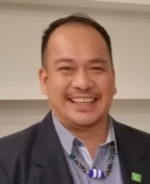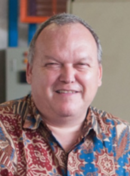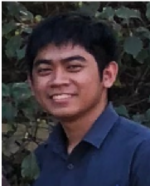Mini-Grid Webinar Series 2019
|
Mini-Grids Webinar Series 2019 |
The Hydro Empowerment Network (HPNET) is a south-south, knowledge exchange and advocacy platform to advance small-scale (<1MW) hydropower. HPNET, in partnership with the WISIONS of Sustainability initiative and Energypedia, is conducting a 4-part, quarterly webinar series on mini-grids.
Renewable energy mini-grids are a cost-effective and reliable solution for energy access. Within the technologies available for mini-grids, micro and mini hydropower (MHP)1 has added advantages. It's techno-economic characteristics, such lower levelized cost of electricity, per kilowatt cost, and no need for battery storage, make it economically viable for grid interconnection and productive end use applications. read more
Because MHP hardware can be manufactured locally and maintained by local actors, MHP development imparts local skills and jobs, which can evolve into local MHP enterprises. In addition, MHP strengthens catchment area and watershed protection, in turn increasing the climate resilience of vulnerable communities in hilly regions.
The number of hydro mini-grids in rural areas of Asia, Africa, and Latin America far exceed other types of mini-grids. As a proven technology with an extensive track record, micro and mini hydropower is the focus in this mini-grid webinar series. The objective of the series is to facilitate exchange among diverse actors advancing small-scale hydro, and promote approaches that lead to long-term success and optimal local benefits. Each of the four webinars will respectively provide insight on MHP reliability, sustainability, financing, and planning for scalability.
[1] In this context, micro hydropower refers to <100kW, and mini hydropower refers to 100 - 1000 kW (or 1MW).
1st Webinar
Mini-Grid Reliability: The Role of Training Centers for Micro/Mini Hydropower
Thursday, 28 March 2018 at 11:00 a.m CET.
Register: https://register.gotowebinar.com/register/7030849491434085121;
Micro and mini hydropower (MHP) implementation involves technical expertise in hydrology, civil works, electro-mechanical, electrical, and electronics. Thanks to the pioneers of knowledge transfer for small-scale hydropower, e.g. the Intermediate Technology Development Group (ITDG), Skat Foundation, HydroNet, and others, comprehensive and frequent training was made available in the 1990s to practitioners in the global south. While such training is rare in the present-day scenario, the earlier efforts led to the creation of local experts who have since established local training centers. The Southeast Asia region particularly benefits from micro hydropower training centers. This webinar – the 1st in a series of four webinars – will feature the following training centers that provide local capacity building for the development, operation, and maintenance of community-based micro hydro projects in Indonesia, Malaysia, and the Philippines.
- Tonibung Center for Renewable Energy and Appropriate Technology (CREATE), Malaysia
- ASEAN Hydropower Competence Centre (HYCOM), Indonesia
- SIBAT Center for RE and Appropriate Technology (CREATech), Philippines
read more
We will hear from the founders or coordinators of the centers, presenting the motivation, concept, and evolution of the centers. They will explain the training facilities, types of training, the center’s sustainability, and the impact the centers have had on the reliability of micro hydropower projects.
Presentations will be followed by a Question/Answer session open to all participants.
Speakers
|
HON. ADRIAN BANIE LASIMBANG | |
|
JADE ANGANGALAO | |
|
GERHARD FISCHER | |
Moderator | |
|
|
MOLLY HURLEY-DEPRET Molly Hurley-Depret is a cultural anthropologist turned ethical PR and communications strategist, working at the intersection of policy and communication for a decade in Europe and globally. |
Thematic Discussant
|
LANZ GABRIEL JABLA Lanz Gabriel Jabla is the Knowledge Platform Coordinator of the Hydro Empowerment Network and the Technical Support Officer at Yamog Renewable Energy Development Group, based in Mindanao, Philippines. Lanz has a BS degree in petroleum engineering and has completed certified training in community resource training, GIS/GPS, and technical writing. Upon completing his degree, he completed an internship at the Shell Foundation, focusing on business operations and social impact investment projects, including energy access. Having realized the consequences of fossil fuel extraction while with the Shell Foundation, he became inspired to work on renewable energy solutions, including volunteering with Yamog. |
2nd Webinar (June 2019)
Mini-Grid Sustainability: Transitioning to Enterprise-based Micro Hydropower
June 2019
Collective research and observations within the Hydro Empowerment Network reveal that the long-term sustainability of community-based micro and mini hydropower projects is dependent on whether the project is run as enterprise. This webinar – the 2nd in the series – will feature practitioners in Myanmar, Nepal, and Pakistan who are enabling enterprise-based micro and mini hydropower projects.
Stay tuned for details!
3rd Webinar: (September 2019)
Mini-Grid Financing: Enabling the Role of Local Banks
September 2019
The replication of economically viable micro and mini hydropower projects can be accelerated with financing from local banks. This webinar – the 3rd in the series – will feature local banks that have financed or are in the process of financing hydro mini-grids.
Stay tuned for details!
4th Webinar: (December 2019)
Mini-Grid Planning: Data Mapping Tools for Multi-Actors
September 2019
Stay tuned for details!
<headertabs></headertabs>
Organizers
|
|
The Hydro Empowerment Network (HPNET) is a knowledge exchange and advocacy platform for micro/mini hydro practitioners in south and southeast Asia, focusing on policy, technology, and socio-environment solutions for long-term sustainability. Core support for HPNET comes from the WISIONS initiative at the Wuppertal Institute for Climate, Environment and Energy. |
|
|
WISIONS of Sustainability initiative's main objective is to make clean energy a default solution for basic energy needs in developing regions, by helping local partners to identify successes and bring them to scale through regional networks, marketing and demonstration. |
| Energypedia UG is a non-profit organization that runs and maintains the wiki-based platform, www.energypedia.info. Energypedia.info is an online platform for collaborative knowledge exchange on renewable energy, energy efficiency and energy access in the context of development cooperation. |


























